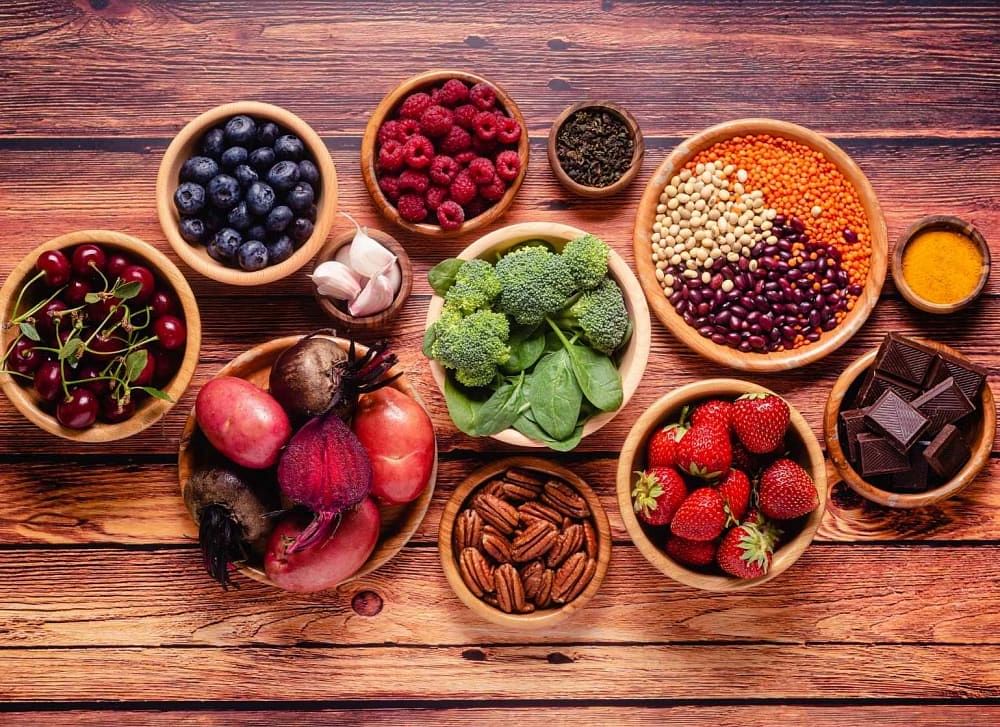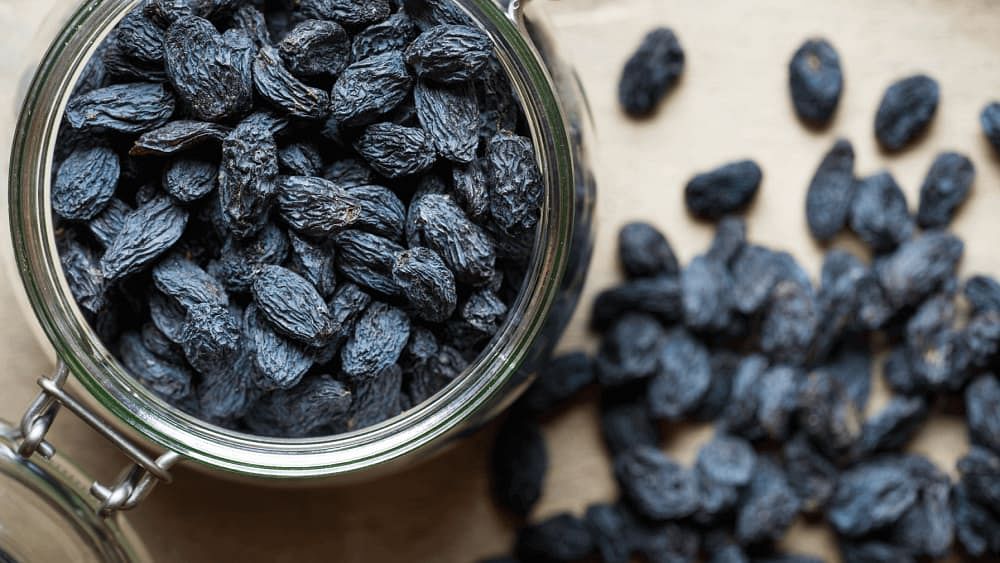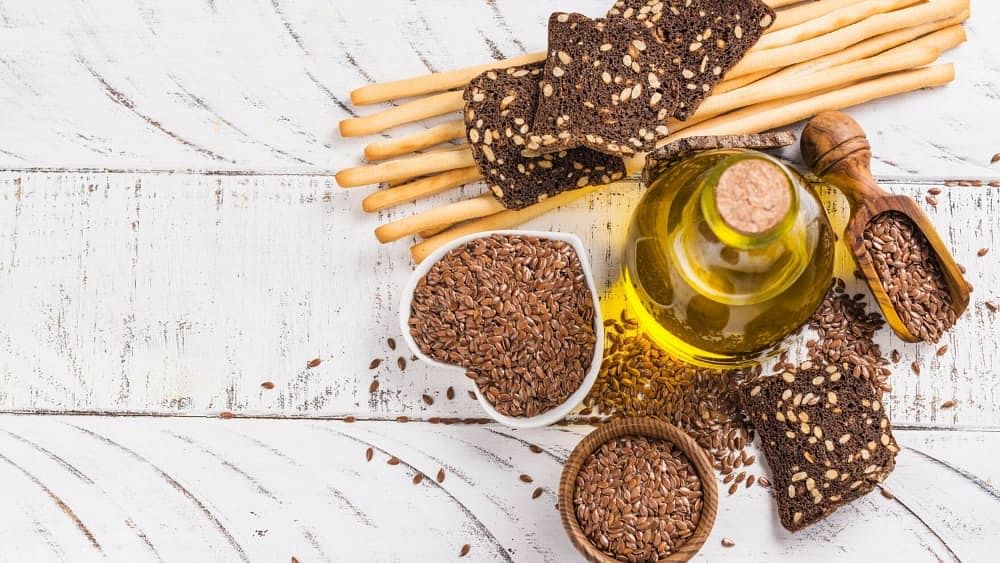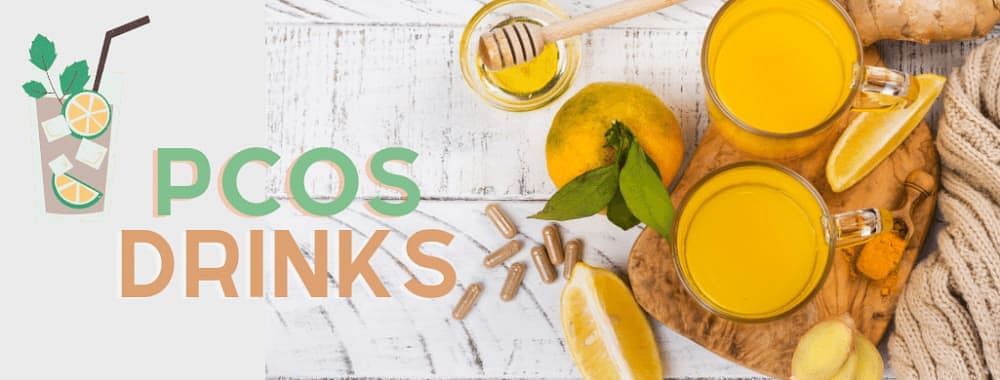PCOS is a common health condition that affects one out of 10 women of childbearing age. It can cause other serious health challenges, including diabetes, cardiovascular disease, depression, and an increased risk of endometrial cancer.
Research has shown that a PCOS diet can help reduce the effects of the condition. Find out more about the PCOS diet in this article.

What is PCOS and How Does it Impact Health?
Polycystic ovary syndrome or PCOS is one of the major causes of women’s infertility. It usually appears in the late teens or around 20s. PCOS affects the ovaries’ functions. The exact cause of PCOS is still unknown, but it is believed to be related to hormonal imbalances and genetics. Sometimes, it runs in families.
Women release an egg or ovum from ovaries in every menstrual cycle. This process is known as ovulation. In PCOS, women fail to ovulate regularly. It results in irregular menstrual cycles and difficulty in achieving pregnancy. In PCOS, multiple cysts (a hollow cavity) are formed in the ovaries.
It results in more production of androgen hormone (it contributes to growth and reproduction). An increased androgen level results in excess hair growth and male-pattern baldness in females.
Women with PCOS may show the following signs and symptoms:
- Irregular periods
- Absence of periods
- Difficulty in achieving pregnancy
- Excess hair growth on face, chest, and back
- Increase in body weight
- Acne and oily skin
- Skin pigmentations
- Thinning of hair
- Mood swings
- Enlarged ovaries
Not only this, females with PCOS are at risk of:
- Infertility
- Miscarriage or premature birth
- Type 2 Diabetes
- High blood pressure
- Gestational diabetes during pregnancy
- High cholesterol
- Heart problems
- Liver problems
- Depression
- Anxiety
- Eating disorders
- Sleep apnoea
- Cancer of the uterine line (endometrial cancer)
Though there is no cure for PCOS right now, there are ways to reduce the severity of symptoms of PCOS. A well-balanced diet, regular exercise, a healthy lifestyle and proper management of stress help manage PCOS. You can regulate weight gain and hormonal imbalance by avoiding certain foods and incorporating the best foods for PCOS into the diet.
Diet combined with lifestyle changes and physical activity can positively impact the health of PCOS females. Any physical activity brings down insulin levels and also improves mood. Aerobic exercises including brisk walking, swimming and biking are best. Also, PCOS females can endure resistance training exercises, including sit-ups, push-ups, and squats.
As per studies, behavioural strategies help achieve weight management goals. For instance,
- Setting up a goal
- Steps should be taken for psychological well-being
- Getting social network support
- Self-monitoring techniques
Also, incorporating new lifestyle changes needed for PCOS females might help manage the disorder. Here is a list of a few things to avoid in PCOS:
- Do not stress yourself out
- Do not make over-commitments
- Irregular sleeping habits
- Not following the diet
- Skipping meals to lose weight
- Avoiding exercise
- Alcohol and tobacco use
- Drug abuse
- Smoking

Foods to Avoid in PCOS
The main problem associated with PCOS is weight gain. It further complicates the condition and also leads to mental and emotional trauma. If PCOS females want to manage their weight, they need to adopt some dietary changes. They should take foods that are best for PCOS management and avoid those that are not helpful.
Foods that trigger the inflammatory process, which disturb hormonal levels and raise blood sugar levels, are the worst food for PCOS. Here is a list of 10 foods to avoid during PCOS
1) Processed food:
Foods like white rice, candies, loaves of bread, potatoes, pastries have refined flour. Refined carbohydrates are the worst food for PCOS and should be avoided. PCOS women are more likely to develop diabetes. Refined carbohydrates increase insulin production in our body, leading to diabetes.
2) Coffee or caffeinated drinks:
Coffee has caffeine, and its consumption raises estrogen hormone(female hormone) levels in the body. In PCOS, hormone levels are already disturbed. An increased amount of coffee intake can further complicate the condition. It is best advised to avoid coffee and caffeinated drinks.
3) Fried foods:
They have large amounts of unhealthy saturated fats and trans fats. They are unhealthy and can increase the risk of weight gain. They also increase blood sugar levels and can cause gastric problems and bloating. Fried foods are also inflammatory foods that exacerbate PCOS symptoms. You should avoid them completely.
4) Alcohol:
Some doctors ask to completely avoid alcohol if you have PCOS. Alcohol consumption can increase the levels of testosterone hormones and also disturb the hormones required for ovulation. It lowers blood sugar levels, leading to increased food cravings and resulting in weight gain and nutritional deficiency in some. It can trigger migraines in some.

5) Red Meat:
Excess consumption of red meat such as steaks, pork and hamburgers can decrease the level of progesterone hormone. This hormone is required for pregnancy and a healthy menstrual cycle. It also causes more inflammation in the body. Also, red meat has bad fat, which results in weight gain. Its intake can worsen the symptoms of PCOS.
6) Sugary beverages:
Soda, fizzy drinks and energy drinks have high sugar levels. It increases the release of insulin and affects the level of testosterone. It can also lead to mood swings and bloating. Also, the too much sugar in these drinks will be stored as fat by the body, leading to weight gain.
7) Processed meat:
Hot dogs, salami, and sausages are highly processed meats with high saturated fats and sodium levels. It can cause weight gain. They can cause inflammation which disrupts the hormonal levels of the body. Processed meat also has high sodium levels. Therefore, it should be avoided by PCOS females.
8) Dairy products:
Milk has some chemicals that increase androgen hormone production. Androgen helps in the production of estrogen (female hormone). Increases in estrogen levels can lead to the severity of PCOS. Milk and milk products like cheese, sweetened yoghurt, and ice cream should be avoided by PCOS females.
9) Unhealthy Fats:
Foods like baked cookies, fried foods, cakes, and butter have saturated and strand fats. Consumption of these unhealthy fats can increase the risk of heart diseases, diabetes and obesity. They can also increase estrogen production leading to hormonal imbalance. This can worsen the symptoms of PCOS.
10) Soy:
Soy products have a compound named phytoestrogen. It mimics estrogen hormone (female hormone) and can trick the body into reducing the production of estrogen hormone. It leads to hormonal imbalance, which further worsens the symptoms of PCOS. Soy also negatively affects the thyroid gland. As per studies, It can aggravate the severity of PCOS and lead to bloating weight gain and irritability. Avoid soy products as much as you can.
Many females have found some relief from symptoms by avoiding these foods. But, this is not an all-inclusive list. Every woman has different health conditions associated with PCOS. Also, the severity of symptoms varies in people. It is best to understand what impact a portion of food has on the body and choose the best foods for PCOS. You can consult a qualified healthcare practitioner for diet as per your body requirements.

Fruits to Avoid in PCOS
You cannot completely cut off sugar from your diet. However, sugar is a matter of concern for PCOS females. The sugar we add to foods, sucrose, is easily digestible and is rapidly absorbed by the body. It can lead to a sharp increase in sugar levels and insulin. Therefore, we should focus on naturally occurring sugar that is not as easily digestible as sucrose. It is found in the fruits.
Fruits are the cornerstone of a healthy diet. They have naturally occurring sugar, fructose and high fibres, which slowly affect blood sugar and insulin levels. Apart from this, fruits are loaded with vitamins, antioxidants and minerals. They are well-suited in the PCOS diet. They help maintain hormone levels.
Additionally, fruits are more filling because of their fibre content. They take a longer time for digestion and thus reduce the risk of overeating and keep the weight in check. As per dietary guidelines issued by the U.S Department of Agriculture and the U.S. Department of Health and Human Services, daily fruit intake varies according to age. But, in general, an adult should take at least two cups each day, out of which half should come from whole fruit, not just juice.
When you are managing PCOS, you need low carbs. So, some fruits are better than others. Here is a list of fruits to avoid in PCOS
- Melon
- Pineapple
- Bananas
- Oranges
The fruits which do not have edible skin have fewer fibres. The fruits mentioned above have a high glycemic index (GI), which can quickly raise blood glucose levels. It doesn’t mean that they are not healthy. For instance, bananas have a medium GI but a high potassium and vitamin B source. Therefore, instead of completely avoiding them, you can limit the portion and frequency of these fruits.
To help you understand the right quantity of healthy fruits, we are mentioning a list of fruits with a portion size that can be consumed by the PCOS female
- 1 cup of strawberries
- 1 cup cherries
- 2 small plums
- Half banana
- 1 cup of grapes
- 1 small apple
- 1 orange
- 1 large peach
You can enjoy the quantity mentioned above of fruits as a snack between meals. Eating too much at a time can elevate sugar levels quickly, so be mindful while eating fruits.

Best Foods for PCOS
As per studies, certain foods can help lose weight and are proven to manage PCOS symptoms. Natural, unprocessed and high fibre food is beneficial. The best foods for PCOS are:
1) Fruits:
Choose fruits loaded with nutrients and have high fibre content like apples, avocados, kiwi, peach and plums. Fruits with anti-inflammatory properties such as grapes and berries like blueberries, blackberries and cherries are also helpful in PCOS.
2) Vegetables:
Broccoli, cauliflower and leafy green vegetables such as spinach and kale are well-suited for a PCOS diet. They are high-fibre food with lots of nutrients and vitamins.
3) Fatty fishes:
Mackerel, tuna, and salmon are rich protein sources and healthy fats. They are anti-inflammatory foods. They fight the inflammation that stimulates the ovaries to produce more androgen. Avoid fried and processed meat with high sodium and trans fat. Also, they have fish oil and vitamin E, which helps maintain insulin levels.
4) Legumes, dried beans, and lentils:
They are rich sources of fibres and plant proteins. Chickpeas, black beans and yellow lentils are beneficial for females with PCOS. They help in weight management.
5) Healthy Nuts:
Walnuts, pistachios, almonds and pine nuts can be added to the PCOS diet. They have high calories and healthy fats in them. They also reduce inflammation and thus prevent PCOS symptoms from worsening. Among them, walnuts and almonds are a must-add to the PCOS diet.
6) Seeds:
They are healthy and have nutrients that help manage hormonal imbalances, weight and PCOS. The best seeds to include in your diet are chia seeds, pumpkin seeds, sesame seeds, sunflower seeds and flax seeds. They are packed with essential nutrients like iron, magnesium and vitamins, which improves overall well-being.
7) Spices and herbs:
You can add spices like turmeric, ginger, and cinnamon to your diet. Herbs like basil, fenugreek and ashwagandha are also helpful in managing PCOS. They are anti-inflammatory and manage blood sugar levels. They also enhance women’s fertility and regulate the menstrual cycle.

Certain dietary swaps can help in managing weight. You can easily incorporate them into your daily routine. A few of the PCOS foods to avoid and swap for healthier versions are:
- Use of whole grains or multigrain pasta bred, or tortillas instead of that of refined flour
- Use of brown rice instead of white rice
- Use natural sweeteners such as jaggery powder or dates instead of adding artificial sweeteners
- Use of oats, barley and rye as the breakfast cereal
- Instead of high-fat milk, use non-dairy milk alternatives like almond milk or coconut milk
- Cooking in healthy fat oils like extra virgin olive oil or flax seeds oil
- A moderate quantity of dark chocolate and green tea can be helpful
- Avoid packaged snacks, and frozen meals, fast food and dried fruits
- Avoid instant packaged soups or pasta premixes and seasoning
How Does Diet Affect PCOS?
As per studies, what we eat profoundly impacts PCOS management. Diet can affect weight management and insulin levels in people with PCOS. Insulin plays a major role in PCOS. Many females with PCOS have insulin resistance which means body cells stop responding to insulin. In this, excess sugar in the blood reduces the ability of cells to absorb it. It results in the development of diabetes. Around 50 per cent of women with PCOS develop diabetes or prediabetes before the age of 40.
Which is the best food for PCOS and which Indian foods to avoid in PCOS depends upon the symptoms and severity of the disorder. Three basic diet plans help PCOS females manage their symptoms.
1) DASH diet:
Consulting doctors may recommend a PCOS person to follow Dietary Approaches to Stop Hypertension (DASH) diet. As per studies, the DASH diet reduces the risk of heart disease while managing weight in PCOS. The dead encourage people to avoid food with high saturated fats and sugar. It has fish, fruits, poultry, vegetables, whole grain and low-fat dairy products. It is healthy for PCOS females.
2) Low glycemic index diet:
Glycemic Index (GI) measures how fast food can raise blood glucose levels. Food with a low glycemic index tends to digest slowly. Therefore they do not raise blood sugar levels quickly. Such low GI foods are seeds, fruits, nuts, legumes and starchy vegetables. It is advised to consume a low glycemic index diet to control weight in PCOS.
3) Anti-inflammatory diet:
Food that reduces inflammation-related symptoms like fatigue are included in this diet. It lessens the severity of PCOS symptoms. It includes foods like berries, extra virgin olive oil, leafy green vegetables, and fatty fish.
As per studies, any diet aiming for weight loss will improve the metabolic and reproductive health of the person having PCOS. Your diet plan should be according to your health conditions. For instance, those who have high blood pressure and PCOS can go for a DASH diet, and those who have PCOS and high sugar levels can go for a low glycemic index diet. Consult a qualified professional dietitian for a tailored diet plan according to your health needs and personal preferences. Once you start following any of the diets mentioned above, be patient with your body. It takes time and continues to make adjustments with the food.

Other Lifestyle Changes to Avoid PCOS
PCOS patients can also manage their condition through lifestyle changes. According to research, combining a PCOS diet with exercise can result in a number of benefits, including:
- weight loss
- improved insulin metabolism
- more regular periods
- reduced levels of male hormones and male-pattern hair growth
- lower cholesterol levels
A person with PCOS can also manage their symptoms by practicing self-care, which includes getting enough sleep, avoiding over-commitment, and relaxing.
Summing Up on Foods to Avoid in PCOS
Although PCOS is currently incurable, individuals can reduce their symptoms and improve their quality of life by eating healthfully and exercising regularly.
People can manage PCOS by maintaining a healthy weight and consuming healthy fats, lean proteins, and moderate amounts of low-GI carbohydrates.
FAQs
1) Is Milk Bad for PCOS?
Milk is a good source of calcium and protein, and due to its high lactose content, it is also considered a carbohydrate food.
The Journal of the Academy of Nutrition and Dietetics reported a positive link between dairy consumption and acne. It was found in this study that milk, especially nonfat milk, can raise androgen and insulin levels.
It may be advisable for women with PCOS to limit their milk intake for these reasons. However, you may not have to avoid dairy products altogether. If you do not have an allergy or are highly sensitive to milk, you can consume a few servings per week.
2) Are Bananas Good for PCOS?
A banana is good food for people with Polycystic Ovary Syndrome because it's high in potassium and low in sugar. People with Polycystic Ovary Syndrome may experience hyperinsulinemia, so foods with a balance of protein and carbohydrates are helpful as well. Bananas may also aid the digestion of other foods.
3) What Is the Best Breakfast for PCOS?
High-calorie breakfasts combined with a low-calorie diet can lessen the effects of commonly experienced PCOS symptoms, such as unwanted body hair, acne, and an elevated risk of type-2 diabetes. You can go for the following healthy options while dealing with PCOS -
- Jowar Upma
- Quinoa Veg Upma
- Ragi Upma
- Whole Moong Dosa
- Nachni Dosa
- Wheat Dosa
- Oatmeal Almond Milk with Apples
- Sprouted Moong and Methi Chilas
4) Is Chicken Bad for PCOS?
People with PCOS can benefit greatly from eating lots of lean proteins. Chicken and fish, for example, do not provide fibre but are extremely filling and nutritious.











